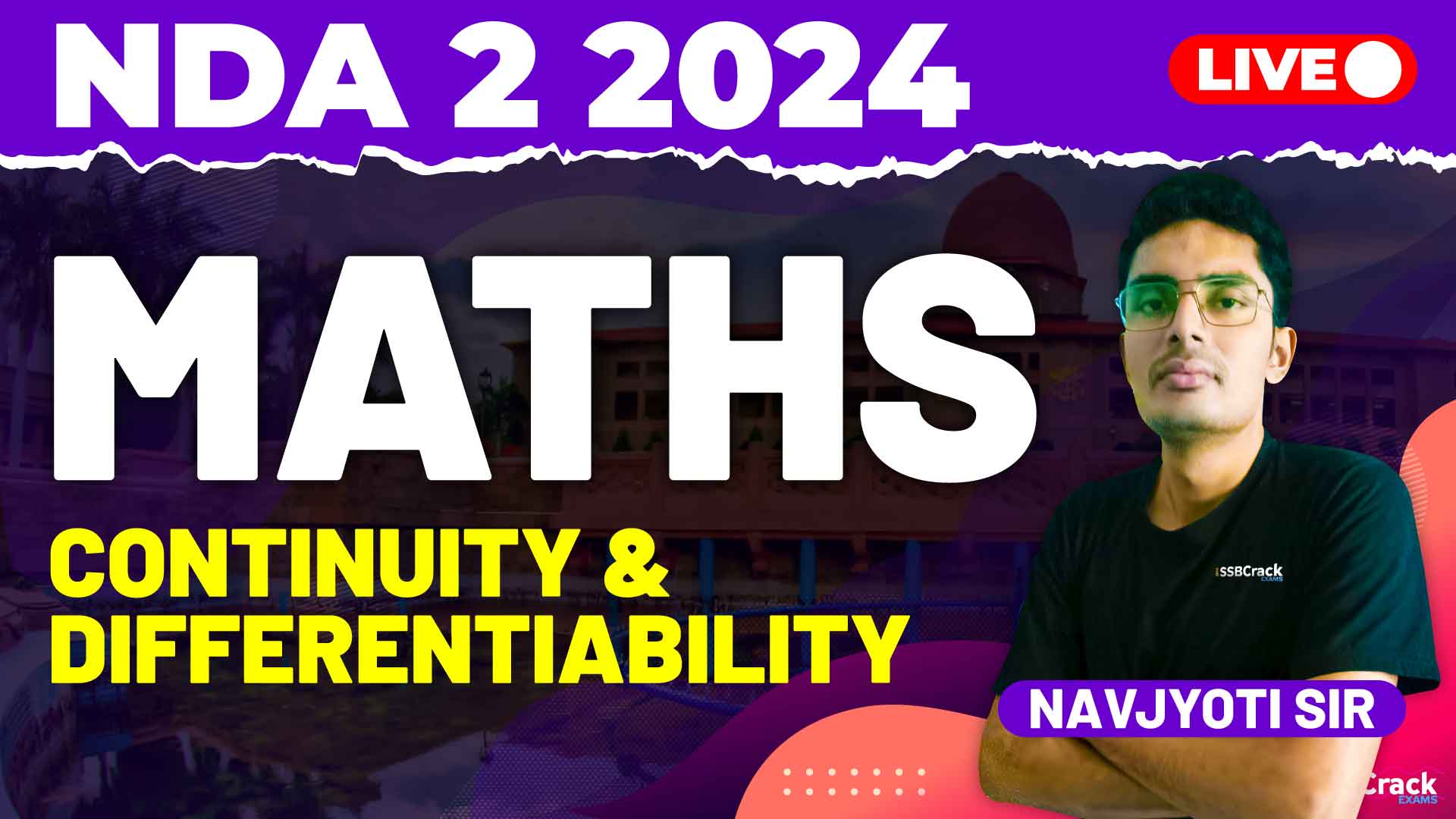Preparing for the NDA-NA Exam requires a solid understanding of various mathematical concepts. One crucial topic covered in our preparation class was Limits, Continuity, and Differentiability. This article will highlight the key sub-topics discussed in the class, focusing on basic ideas of limits, the neighborhood of a point, continuity, continuous functions, their properties, basic concepts of differentiability, and related topics. We will also explore strategies for preparing effectively and solving MCQs on continuity.
Understanding the Basics
Limits
Limits are fundamental in calculus, serving as the foundation for continuity and differentiability. The basic idea of a limit is to understand the behavior of a function as it approaches a specific point. Mastering limits involves understanding how to evaluate them and recognize when a limit exists or does not exist.
Neighborhood of a Point
The neighborhood of a point refers to the set of points around a given point within a specified distance. This concept is crucial for understanding limits and continuity, as it helps in visualizing how functions behave near specific points.
Continuity
Continuity and Continuous Functions
A function is continuous at a point if the limit of the function at that point equals the function’s value. Continuity is essential for understanding the smoothness of functions and their behavior over intervals. Continuous functions are those that do not have any breaks, jumps, or holes in their domain.
Properties of Continuous Functions
Continuous functions have several important properties, such as the Intermediate Value Theorem, which states that if a function is continuous on a closed interval, it takes every value between its minimum and maximum values on that interval. Understanding these properties is crucial for solving problems related to continuous functions.
Differentiability
Basic Idea of Differeantiability
Differentiability refers to the existence of a derivative for a function at a given point. A function is differentiable at a point if it has a defined slope or rate of change at that point. Differentiability implies continuity, but the converse is not always true.
Strategies for Effective Preparation
1. Understand Fundamental Concepts
Begin by ensuring a clear understanding of fundamental concepts. Use visual aids like graphs to comprehend limits, continuity, and differentiability better. Visualizing how functions behave around points and over intervals can significantly enhance your understanding.
2. Consistent Practice
Regular practice is essential. Work through a variety of problems to get accustomed to different types of questions. Practice not only helps in mastering the concepts but also improves your speed and accuracy.
3. Use Study Aids
Utilize study aids such as textbooks, online tutorials, and educational videos. These resources often provide additional examples and explanations that can help clarify complex topics.
4. Solve Previous Year Papers
Reviewing previous year question papers is crucial for understanding the exam pattern and types of questions asked. This practice will help you manage time effectively during the actual exam and identify important topics.
5. Group Study and Discussions
Engaging in group study sessions and discussions with peers can provide new insights and help clear doubts. Explaining concepts to others is also a great way to reinforce your own understanding.
6. Seek Help When Needed
Do not hesitate to seek help from teachers or tutors if you encounter difficulties. Clarifying doubts promptly will prevent confusion and ensure a solid understanding of the material.
7. Time Management
Effective time management is crucial during the exam. Practice solving questions within a set time limit to simulate exam conditions. This will help you become more efficient and reduce exam-day stress.
Conclusion
Mastering limits, continuity, and differentiability is essential for excelling in the Mathematics section of the NDA-NA Exam. Our class focused on understanding these concepts deeply and practicing essential MCQs to ensure thorough preparation. By understanding the key sub-topics and employing effective preparation strategies, you can excel in this topic.
In conclusion, dedicating time to understand and practice these concepts, especially focusing on solving MCQs, will significantly enhance your performance in the NDA-NA Exam. Remember to maintain a consistent study routine, utilize visual aids, and engage in group discussions to solidify your understanding. With these strategies in place, you will be well on your way to mastering this crucial topic and achieving success in your exam preparation.







